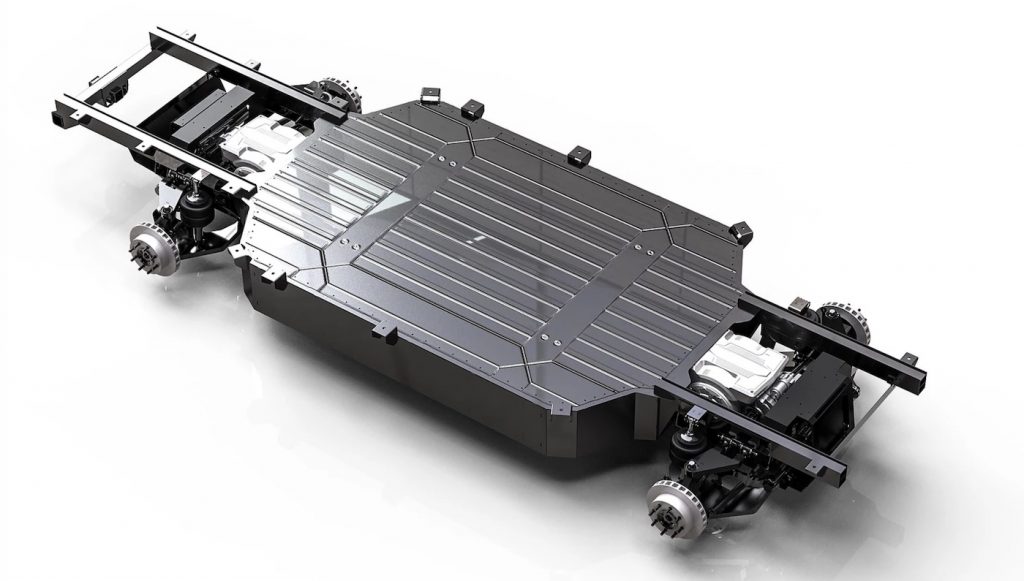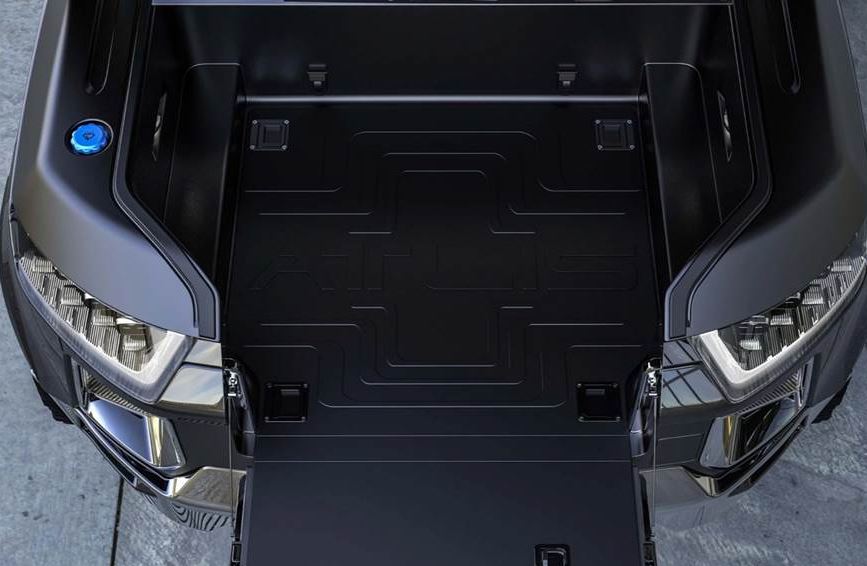There is a new player to the world of electric pickup trucks, the Atlis XT, and much like the Rivian R1T, it is an edgy concept with eye-catching looks and promising range and performance figures.
Its creator, Atlis Motor Vehicles, was founded in 2016 after truck enthusiast Mark Hanchett successfully converted a diesel pickup into an EV. The market may be in its infancy, but companies are rushing to be among the first to bring such vehicles to the masses and benefit from early adopters.
Underpinning the Atlis XT is a bespoke skateboard-style modular platform that includes independent traction motors at each wheel and single-speed direct-drive transmissions. The platform can also be configured with different suspension systems, four-wheel steering, and a tandem axle.
Atlis hasn’t released specifications about the electric motors and batteries the XT will be available with, but says the battery will be offered in 300 mile (482 km), 400 mile (643 km), and 500 mile (804 km) versions. Depending on which battery pack is optioned and which motors it’s coupled with, trailer hitch towing capabilities will vary between 5000 lbs (2267 kg) and 20,000 lbs (9071 kg). Fifth wheel and gooseneck towing capabilities will range from 10,000 lbs (4535 kg) and 35,000 lbs (15,875 kg) and the payload will vary from 1000 lbs (453 kg) to 5000 lbs (2267 kg).
The Atlis XT is also noteworthy for other reasons, too. For example, it uses side cameras rather than traditional mirrors and will eventually offer Level 5 autonomous driving. Inside, it will come equipped with a large central touchscreen offering Android Auto and Apple CarPlay.
To ensure owners can easily charge their XTs, Atlis intends on developing its own high-speed charging network throughout the United States, providing charge times as low as 15 minutes.
Pricing will start at $45,000 and Atlis says it will offer the option of a subscription plan starting at $700 per month for the pickup, maintenance, insurance, and free charging.
The XT will be manufactured in the United Statess and should hit the market in 2020.











